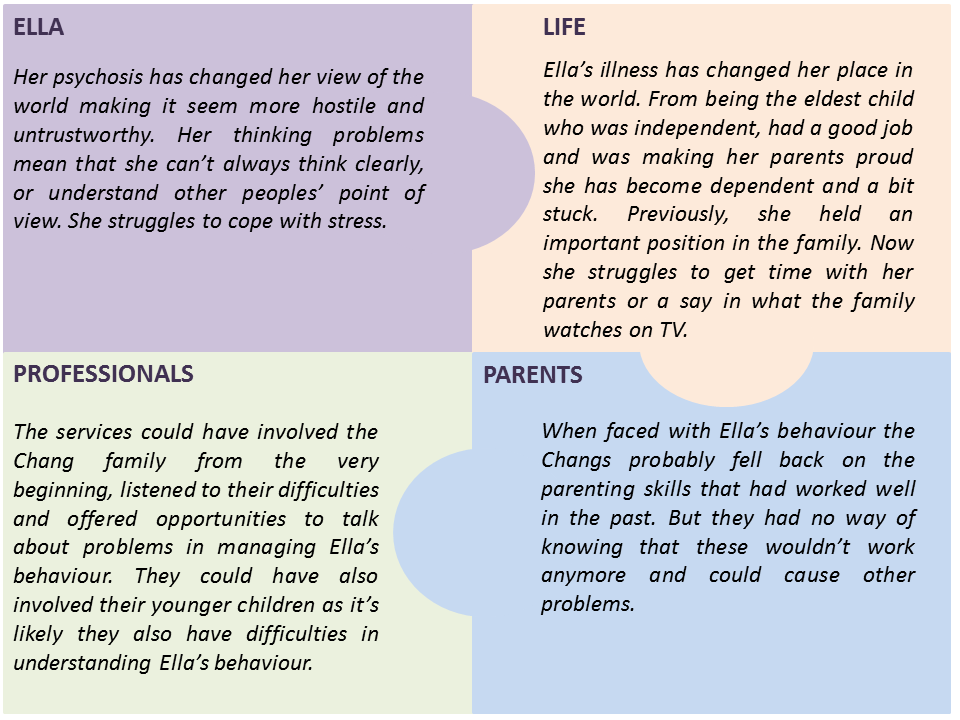
What do you think is going on?
Think about Ella and the rest of the Chang family. The first thing we need to do is understand why she might be behaving in this way. We need to consider a range of factors including:

By the time we become adults we have a lot of choice about the things that we do and how we behave. However, our actions and choices are still partly determined by the world around us. Ella’s behaviour probably stemmed from a number of different factors.

Sometimes people experiencing psychosis or bipolar don’t want their family members involved. However, relatives who need help can still request support for themselves even if their relative does not want them involved in their care. This should be offered from different parts of the service if necessary.
Mr and Mrs Chang described going through several stages…
1. Minimisation (pretending things weren’t really as bad as all that)
At first, they didn’t understand the problem and they hoped it would go away by itself. They imagined that as an adult Ella would have control over this. They didn’t want to mention it to anyone or get help from mental health services because they were arguing with each other; also they didn’t want the rest of the family to worry about it.
2. Enabling
Without meaning to, the Changs may have made the problems last longer by covering up for Ella. They initially put up with her very difficult behaviour and kept helping her to get out of some of the situations she’d got herself into. Many families and carers get pulled into even more difficult situations, for example buying drugs or alcohol for the person with psychosis, paying off debts, etc. Other families try to make rules and may threaten to make the person leave or talk about other punishments. When it comes to the crunch, most of us are not very good at following through with these threats. Our children tend to learn at a very young age how far they can push us.
3. Taking Control
We are programmed to take control of our children’s lives when they are younger. We decide what schools they go to and make sure that they eat healthily and blow their nose. Sometimes it’s tempting, when an adult remains dependent or vulnerable because of mental health problems, to take control once again of their money or other aspects of their life in an attempt to make them stop using drugs, take their medication etc. This isn’t always a bad idea, especially when the person is very unwell. However, it can make it harder for the person to develop their own skills and get back to being independent.
4. Resignation
Sometimes it seems that the problems are just too big and whatever you try doesn’t make any difference. Mrs Chang had come to the point where she could not discuss things with Ella anymore. Mr Chang had threatened to make her leave the house completely. Many relatives just get too tired to keep coming up with solutions because they struggle with the problem for so long.
Caring for someone is tricky! In other situations, these tactics may have worked very well.


